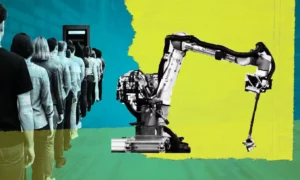Is the UK’s broken planning system finally getting a fix? A new AI tool called Extract, unveiled by Prime Minister Keir Starmer at London Tech Week, may be the breakthrough the housing sector has been waiting for. The tool claims to save thousands of hours of manual work, modernize planning processes, and accelerate much-needed development. Could this mark the start of a digital transformation for local government?
What’s the News?
At London Tech Week, Prime Minister Keir Starmer officially launched Extract, an AI-powered tool designed to revolutionize England’s outdated planning system. Built using Google DeepMind’s Gemini model, the technology processes up to 100 planning records per day and digitizes each one in just three minutes.
After successful trials in Hillingdon, Nuneaton & Bedworth, and Exeter, Extract is expected to roll out to all English councils by spring 2026. The goal is simple: automate labor-intensive tasks, cut through the red tape, and get vital housing projects moving faster.
Currently, local planning officers must sift through around 350,000 planning applications annually—many of them paper-based and sometimes hundreds of pages long. Extract can read and convert decades-old, handwritten records into clean, searchable data almost instantly.
The government says the shift could eliminate around 250,000 hours of manual document-checking every year, freeing up officials to focus on higher-level decision-making.
Starmer described Extract as a cornerstone of the new “Plan for Change,” aiming to unlock infrastructure and accelerate housing. Deputy Prime Minister Angela Rayner also called it a “game-changer” that reduces council burdens while enabling “the biggest building boom in a generation.”
Tom Shardlow, CEO of Nuneaton and Bedworth Borough Council, noted the trial helped his team transform legacy documents into high-quality digital and geospatial data—dramatically speeding up planning processes.
The government plans to expand the tool nationally in partnership with Google, with the processed planning data set to be made publicly available on a new gov.uk portal.
Why It Matters
Planning delays are among the biggest bottlenecks in the UK’s housing crisis. Automating manual processes could unlock thousands of stalled projects and save councils both time and money.
Extract’s digitization capabilities are not just about speed—they enable smarter analytics, better transparency, and broader public access to planning data. That’s a leap forward for local democracy and digital government.
For tech vendors and AI startups, this signals growing government openness to integrating AI into critical public infrastructure. Extract is one of the first real-world, high-impact use cases showing how generative AI can drive national productivity gains.
As urban planning becomes more data-driven, this tool could pave the way for AI-powered zoning, automated approvals, or even predictive infrastructure modeling in the future.
💡 Expert Insight
This kind of AI integration is exactly what local governments need. It shifts councils from reactive bureaucracy to proactive, data-driven planning,” said one consultant who advises UK councils on digital transformation.
“Digitizing legacy records is just the beginning. With proper safeguards and smart deployment, tools like Extract could shift the entire governance model for infrastructure.
🔮 GazeOn’s Take
Extract shows that AI doesn’t just belong in big tech—it can be a key driver of public sector reform. If the nationwide rollout succeeds, we could soon see AI embedded in everything from housing inspections to infrastructure maintenance.
The bigger question: will councils and planners adapt fast enough to use these tools effectively? Training and change management will be just as critical as the tech itself.
💬 Reader Question
Could this spark a broader AI revolution in government services? We’d love to hear what you think.
About Author:
Eli Grid is a technology journalist covering the intersection of artificial intelligence, policy, and innovation. With a background in computational linguistics and over a decade of experience reporting on AI research and global tech strategy, Eli is known for his investigative features and clear, data-informed analysis. His reporting bridges the gap between technical breakthroughs and their real-world implications bringing readers timely, insightful stories from the front lines of the AI revolution. Eli’s work has been featured in leading tech outlets and cited by academic and policy institutions worldwide.



























